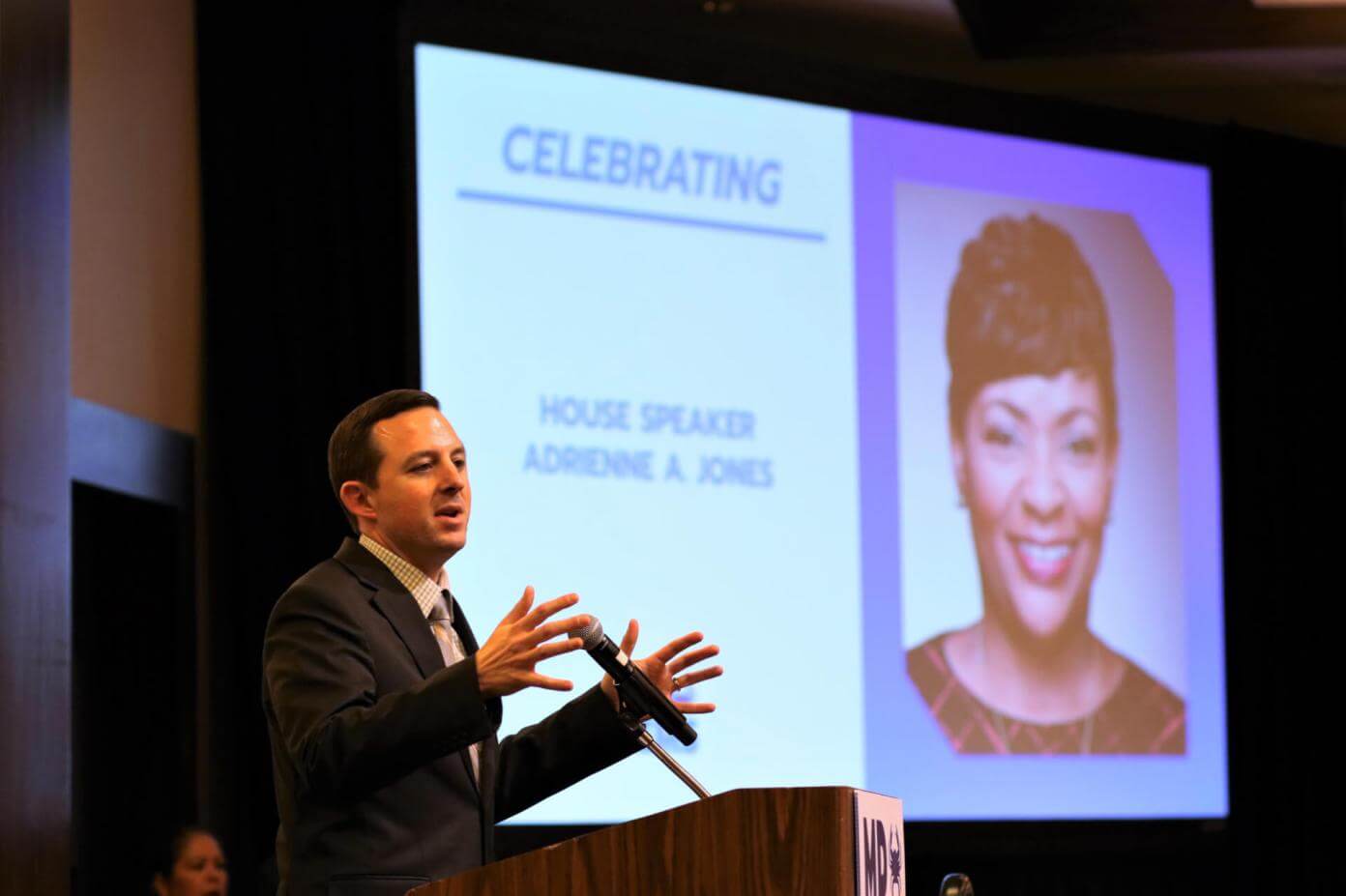Ferguson, Jones Become Money Magnets

Two years ago, Del. Adrienne A. Jones (D-Baltimore County) and state Sen. Bill Ferguson (D-Baltimore City) were the legislative equivalent of middle managers — solid citizens with considerable responsibilities, but not at the center of leadership.
Their campaign treasuries reflected that: Ferguson in January 2019 had $70,341 cash on hand; Jones reported $45,002 in the bank.
But then an earthquake struck the Maryland political world: On May Day of 2019, Jones became speaker of the House, and Ferguson was nominated to become Senate president that fall. He officially took over last January. Both succeeded record-setting leaders.
Not surprisingly, the new presiding officers’ fundraising totals took off. Jones reported raising $758,999 between January 2019 and January 2020; Ferguson collected $794,198 over the same period.
A year later, both have kept a pretty healthy pace on the fundraising front, even with the COVID-19 pandemic limiting fundraising events to Zoom. Jones reported raising $253,250 between Jan. 9, 2020 and Jan. 13 of this year, and finished the year with $778,100 on hand. Ferguson did even better — raising $417,019 and reporting $1,071,992 in the bank.
It’s good to be at the top of the political heap.
The leaders’ latest campaign finance reports, submitted to the State Board of Elections this week, show many similarities. They are laden with donations from executives of energy companies, health care providers, cannabis growers, banking and financial interests, gambling concerns, and many other business sectors. Labor leaders and union political action committees are also faithful donors. So are most of the top-earning lobbyists in Annapolis.
Ferguson and Jones each reported $4,000 contributions from Northeast Maglev, which is trying to build a high-speed magnetic train between Washington, D.C., and Baltimore — and ultimately, farther up the Northeast corridor.
Both got $500 contributions from Patrick Hogan, the University System of Maryland vice chancellor for government relations — and brother of Gov. Lawrence J. Hogan Jr. (R).
Jones’ campaign finance report showed at least $35,000 in contributions from executives at CommuniCare, a provider of long-term care services, and their family members. U.S. Rep. David J. Trone (D-Md.) donated $4,700. United Healthcare chipped in $4,500. Anheuser Busch, the beer company, contributed $4,000.
In all, Jones reported $41,150 in donations from Maryland political action committees and $7,500 from out-of-state PACs.
Jones made a handful of campaign contributions from her political fund: $3,500 to the Maryland State Democratic Central Committee; $1,000 to Nicole Harris-Crest, daughter of the late Baltimore City councilmember Kenneth Harris, who ran unsuccessfully for her father’s seat; $1,000 to the campaign of Baltimore City Council President Nick J. Mosby (D), a former House member; $2,500 to the Baltimore County Democratic Central Committee; and $1,000 to the Georgia Senate Victory Fund.
Ferguson reported receiving $61,850 in contributions from Maryland-based PACs, $22,000 from federal PACs, and $3,000 from out of state PACs.
Ferguson showed $24,000 in contributions from people associated with CommuniCare. The Amalgamated Transitworkers Union donated $6,000. So did Rebecca Siegel, who works for a Bethesda development company, and Scott Rifkin, the Baltimore area health care executive. Ferguson’s report also showed at least a handful of $5,000 contributions.
Ferguson used his campaign fund to donate to four political candidates: $1,000 each to fellow Baltimore City senators, Jill P. Carter and Mary L. Washington; $1,000 to now-City Comptroller Bill Henry (D); and $500 to new Baltimore City Councilmember James Torrence (D).
In addition to their personal campaign funds, Ferguson and Jones also control campaign committees connected to caucuses they lead — though neither was terribly active in the past year.
The Democratic Senate Caucus Committee reported $7,700 in new contributions and $100,686 in cash on hand. The House Democratic Caucus Committee took in $3,539 and banked $67,025.




 Creative Commons Attribution
Creative Commons Attribution